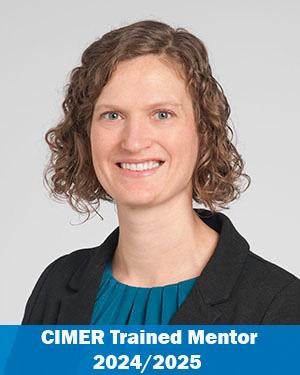Research News
11/25/2024
Predictive modeling addresses healthcare disparities, identifies at-risk patients who may need stomach cancer screening
The model uses a patient’s records to estimate their gastric cancer risk and flag individuals who need preventative stomach cancer screening.

Cleveland Clinic is addressing healthcare disparities affecting Americans of different backgrounds, including those of East Asian, Hispanic, African American and American Indian descent, by developing a predictive model to identify patients at risk of developing gastric (stomach) cancer who may benefit from stomach cancer screening.
The model is designed to identify who might need regular upper endoscopies to sceen for stomach cancer. Although U.S. patients get routinely screened for other diseases, endoscopies – where a patient needs anesthesia – are more invasive.
“For cancer screening to make sense and be cost effective, two conditions must be met: the cancer must affect a certain percentage of the country’s population like colon and breast cancer, and the screening method must be quick and easy like a Pap smear,” says gastroenterologist Michelle Kim, MD, department chair of Gastroenterology, Hepatology & Nutrition.
For example, patients of East Asian descent are more likely to have stomach cancer. In countries like Japan and South Korea, endoscopies are part of older patients’ routine care. The U.S. does not have the same guidelines. Patients do not receive endoscopies until they start showing symptoms.
To identify which patient populations might need routine screening past U.S. guidelines, a clinical team led by Dr. Kim partnered with a research team lead by biostatistician Emily Zabor, DrPH, who heads a lab in Quantitative Health Sciences. Together, they built a predictive model that was recently published in a Gastro Hep Advances article.
Healthcare disparities associated with stomach cancer screening
People of different ages and genders in the U.S are regularly screened for different cancers with colonoscopies, prostate exams, Pap smears and mammograms. Stomach cancer is easy to treat when caught early but can be deadly in its later stages, Dr. Kim explains. Screening endoscopies would identify cancer before symptoms begin.
This lack of regular screening disproportionately affects Americans of East Asian, Hispanic, African American and American Indian descent, who are more likely to develop stomach cancer, Dr. Kim says.
What is predictive modeling and how can it help?
Predictive models in healthcare are statistical tools that are trained using patient data from electronic health records (EHR) to make equations that predict outcomes for other patients in the general population. Dr. Zabor’s team has expertise in statistical methods to develop and validate clinical risk predication models.
Dr. Zabor and her team analyzed EHRs from 614 individuals who received treatment for a form of stomach cancer called noncardia gastric cancer (NCGC) at Cleveland Clinic, as well as from 6,331 randomly selected Cleveland Clinic patients who did not have the disease, to identify features in the patients’ charts that correlated with NCGC. The team then developed equations to determine other patients’ probability of developing stomach cancer, based on the presence or absence of those features in their chart.
The group had to overcome unique hurdles to create their prediction model.
“Prediction models for other diseases often rely on a combination of patient data from EHRs and on results from biopsies and other tests to predict a patient’s outcome,” Dr. Zabor explains. “Because endoscopy results are less common for patients without gastric cancer in the US, we could not use medical tests in our equations. We had to make sure our model could rely solely on EHR-based variables like age, race or lifestyle factors.”
Dr. Zabor and her team validated their model by testing its ability to predict whether other individuals who received care at Cleveland Clinic’s Main Campus had received stomach cancer diagnoses. She and Dr. Kim are currently working to perform the same validation using larger external patient databases across Ohio and Florida and will soon begin validating their models using even larger federal datasets.
After further refinement and validation, the team will make their prediction model publicly available, with the goal of implementing it into clinical practice.
“Collaborating with researchers like this is one of the best parts of my job. It's an opportunity to act on ideas we have from seeing our patients every day,” Dr. Kim says. “My dream is that in my professional lifetime, I can see research like this change our approach to preventing gastric cancer.”
Featured Experts
News Category
Related News
Research areas
Want To Support Ground-Breaking Research at Cleveland Clinic?
Discover how you can help Cleveland Clinic save lives and continue to lead the transformation of healthcare.
Give to Cleveland Clinic
